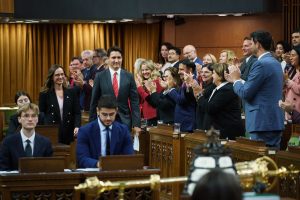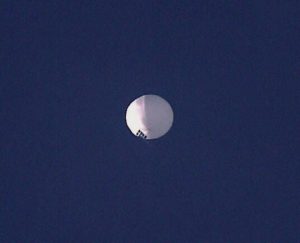Mike Pompeo on Thursday becomes the first US secretary of state to visit Guyana and Suriname as the discovery of oil fuels a sudden new interest in the small South American nations.
The stops come at the start of a three-day tour that will also take Pompeo to Colombia and the Amazonian border areas of Brazil, part of his campaign to highlight the economic devastation in Nicolas Maduro’s Venezuela.
Pompeo will meet freshly elected leaders in Guyana and Suriname, which are also being courted by China as the two nations — underdeveloped and with sharp ethnic faultlines — seek a surge of investment.
“I used to work at the State Department and getting any secretary of state to travel anywhere in Latin America and the Caribbean was a heavy lift,” said Eric Farnsworth, vice president of the Council of the Americas.
“For him to go to both of these countries is extraordinary and shows that something big is happening.”
ExxonMobil in 2015 announced it had found one of the world’s largest oil reserves in years in the waters off Guyana, with the US giant also heavily involved in Suriname.
Guyana — best known to Americans as the site of the 1978 Jonestown mass suicide — was forecast before the Covid-19 pandemic to grow a staggering 85% this year, the highest of any nation in the world.
Pompeo’s trip comes as Guyana reviews its deal with Exxon in which the country would keep about half the oil revenue — an arrangement that some advocates for developing nations say is too paltry.
A State Department official said that Pompeo was not traveling to lobby for Exxon — but that he would encourage both countries to be responsible with the financial windfall.
Pompeo “will highlight through these meetings how US companies throughout the hemisphere invest responsibly and transparently,” the official told reporters.
“This draws a stark contrast with China, whose predatory loans and vanity projects saddle countries in the Western Hemisphere with unsustainable debts,” he said.
China — also hungry for the region’s lumber and minerals — has invited both nations into its Belt and Road Initiative, its global campaign to build infrastructure and win allies.
Farnsworth cautioned that Guyana and Suriname were unlikely to be major priorities for China, considering how far away they are.
But he said that greater US engagement in its own hemisphere would send a message at a time that Washington is in an increasingly global competition with China.
“As we’ve seen, China tends to take advantage and extend activities until there is some pushback. It’s a bit of a feeling-out process,” he said.
The Exxon discovery in Guyana has also exacerbated tensions with neighboring Venezuela, a major oil producer that claims about two-thirds of the former British colony.
The official said Pompeo saw opportunities as he will be meeting new leaders in Guyana and Suriname, both multiethnic states with populations descended from former African slaves and from indentured laborers from the Indian subcontinent.
He opens the trip in Paramaribo, the riverside capital of Suriname, where he will meet with President Chan Santokhi, who was elected in the former Dutch colony in July.
Also read: Mike Pompeo insists US to enforce ‘UN’ sanctions on Iran
He defeated Desi Bouterse, a dictator turned politician who is challenging a prison sentence for ordering the execution of political opponents in 1982.
Pompeo heads later Thursday to Guyana’s capital Georgetown where he will meet President Irfaan Ali.
The 40-year-old leader was inaugurated last month after defeating incumbent David Granger, whose party for months challenged the election results.
Granger gave up in part after Pompeo imposed sanctions on members of Granger’s administration, accusing them of undermining democracy.
Despite the lack of high-level US visits, Guyana has a complicated history with Washington. Declassified documents have shown that the CIA helped rigged pre-independence elections to keep out reputed Marxist Cheddi Jagan, a US-educated dentist now considered father of the nation.





